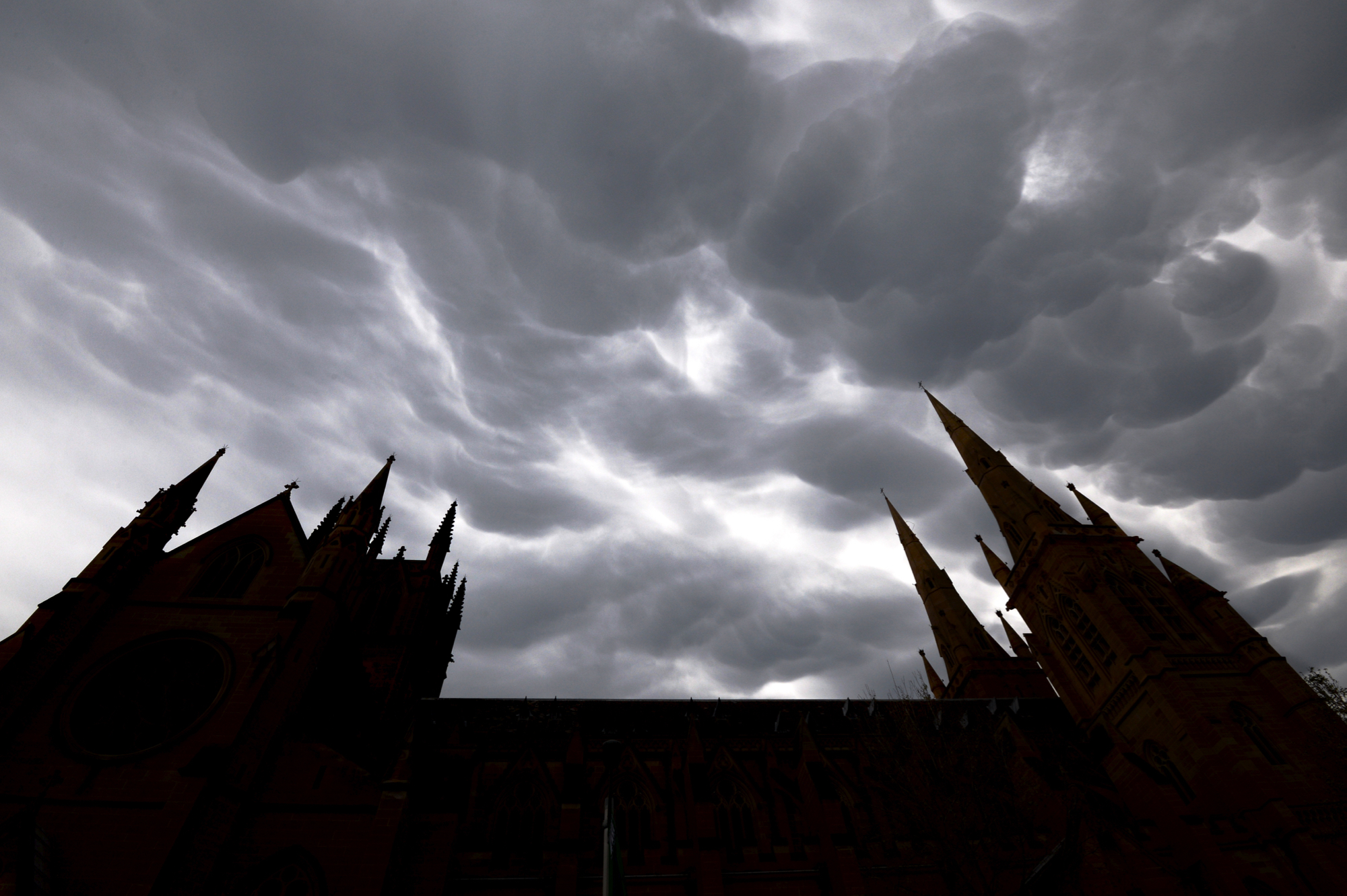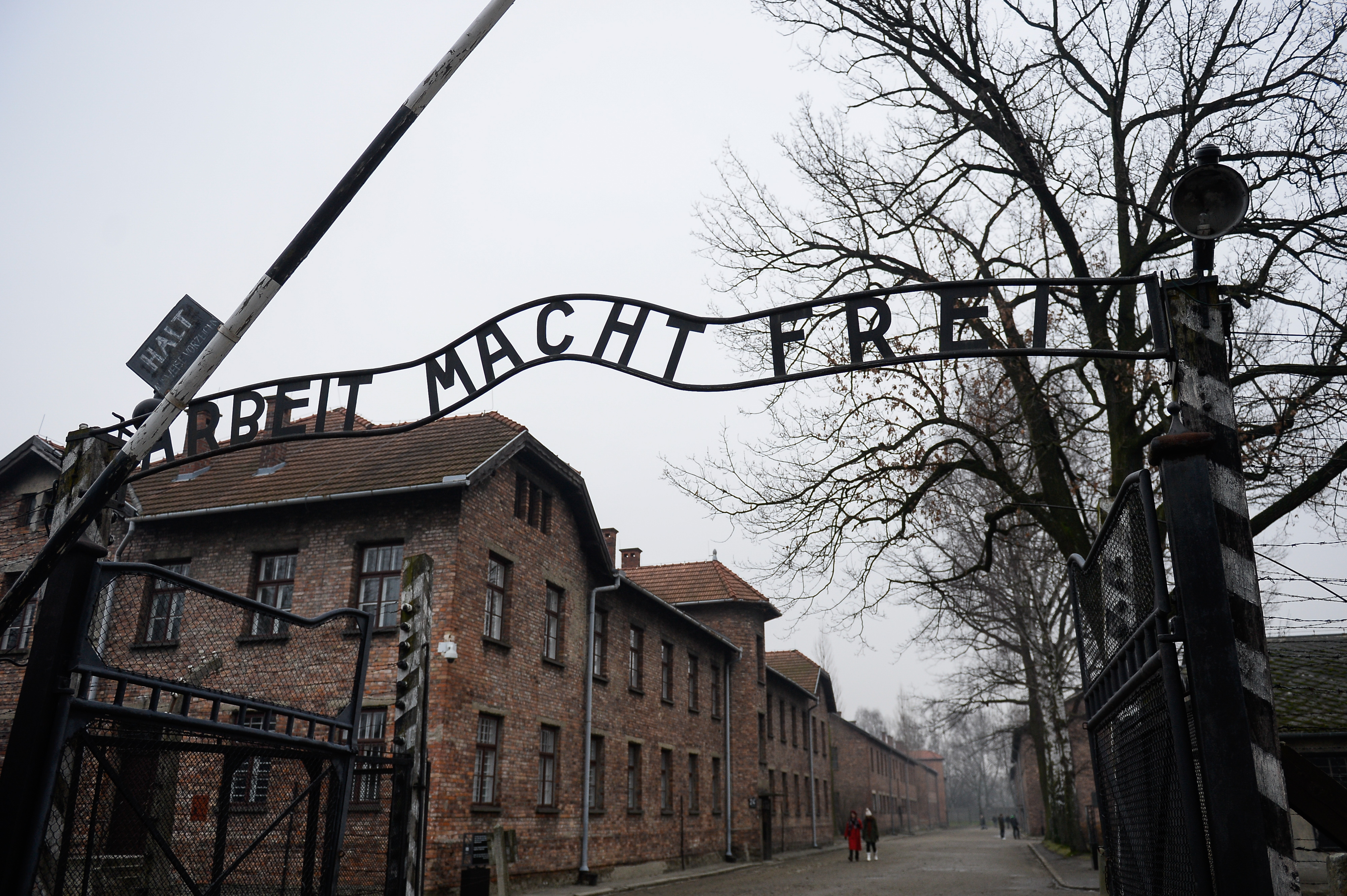A Polish Church leader has denounced the condemnation that has poured in from around the world over a new government-sponsored law on responsibility for Holocaust crimes.
The new law, enacted in January with support from the governing Law and Justice party, imposes fines or up to three years' jail for anyone who "publicly and against the facts attributes to the Polish nation or Polish state responsibility or co-responsibility for Nazi crimes", or "flagrantly reduces in any way the responsibility of the real perpetrators".
More than six million Polish citizens, half of them Jews, were killed during the country's 1939-45 occupation by Nazi Germany, which sited many of its death camps, including Auschwitz-Birkenau, Belzec, Sobibor and Treblinka, on Polish territory. Polish officials have long objected to accusations of Polish complicity in the Holocaust, and protested when US President Barack Obama used the phrase "Polish death camp" during a 2012 speech.
The new Polish measure was condemned as "baseless" by Israeli premier Benjamin Netanyahu, as well as by the Jerusalem-based Yad Vashem Memorial Institute, which warned it would impede research and debate on the Holocaust. Meanwhile, Polish newspapers said US officials had threatened to suspend joint military projects and warned that President Andrzej Duda and Premier Mateusz Morawiecki would not be received by President Donald Trump or other Administration members.
Archbishop Waclaw Depo of Czestochowa criticised what he saw as efforts to "alter historical truth".
"In recent weeks, the world has turned away from the truth – not just truth about God, but also truth about us and about our history, turning us into executioners," said Archbishop Waclaw Depo of Czestochowa. "In reality, we're a nation of sacrifice and suffering, which first felt the painful blows of the Second World War, and then had them extended by years of Soviet occupation".
The archbishop spoke after a conciliatory appeal by representatives of 6850 Poles honoured by Israel for saving Jewish lives under Nazi occupation – members of the Polish Association of Righteous Among Nations – was published in US, European and Israeli newspapers. Meanwhile, an appeal for an end to "hateful manipulation of emotions" was also made by Cardinal Stanislaw Dziwisz, former secretary of Pope St John Paul II, who told a Holocaust commemoration rally in Krakow that he hoped for greater understanding.
"The only thing that counts is respect for the other person – for Christians, this fulfils our Lord's demand", Cardinal Dziwisz said. "We should witness to our faith through what we did to our neighbour in need, as well as through being able to reckon with what we failed to do."
In its appeal, the Polish Association of Righteous Among Nations said hundreds of Poles had paid with their lives for showing "kindness and responsibility" to persecuted Jews, while other "ignoble Poles" had "acted on their own behalf" against Holocaust victims. It urged Jews and Poles to continue building "an alliance and future" based on "friendship, solidarity and truth", and also called for "empathy, judiciousness and thoughtfulness when creating laws".
However, Poland's top Jewish philosopher told The Tablet that controversy over the law had sparked a wave of anti-Jewish feeling and urged the country's Bishops' Conference to speak out.
"We haven't witnessed such outbursts for a long time – it would help the Jewish community if those now seeking to join Catholicism with anti-semitism are properly rebuked", said Stanislaw Krajewski, a Warsaw University professor who co-chairs the Polish Council of Christians and Jews. "Whatever the government intended, the anti-Jewish genie is out of the bottle again, and certain extremist groups seem to think they now have permission, thanks to recent signals, to say and do what they like."
In his Tablet interview, Stanislaw Krajewski said he had personally opposed the law, which took effect on 1 March, but added that subsequent "protests and reactions" had worsened the atmosphere and sparked "appalling anti-Jewish statements". "The way the law is formulated makes it a blunt instrument for paralysing and punishing anyone you don't like – but the government's harsh, dismissive reaction to critics has encouraged many people to think they can now attack Jews," said Professor Krajewski. "The government is ruining relations with other countries, while strengthening its electorate at home – this is what threatens and alarms us, and it would be useful if Poland's bishops made clear this anti-Jewish wave has gone too far".
Up to 80 per cent of the world's 13.5 million Jews are believed to have historic family connections with Poland, whose 3.5 million mostly city-based Jews made up a tenth of the pre-war population. Just 100,000 escaped mass-slaughter during the Holocaust, of whom many later emigrated, although numerous Jewish sites have now been restored, and religious and cultural festivals revived.
Pic: A general view of the main gate of Auschwitz, one of the Nazi concentration camps in Poland, during the 73rd anniversary of the liberation of Auschwitz-Birkenau (Credit Image: Omar Marques/SOPA via ZUMA Wire/PA)Picture by: Omar Marques / Sopa



 Loading ...
Loading ...